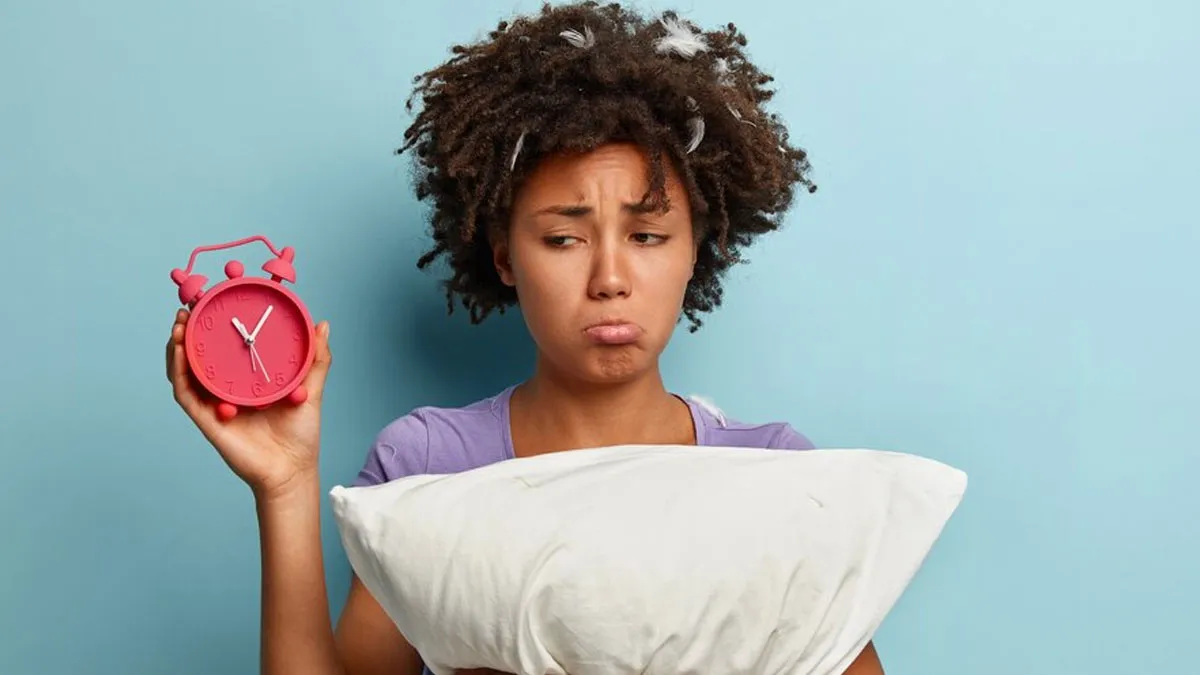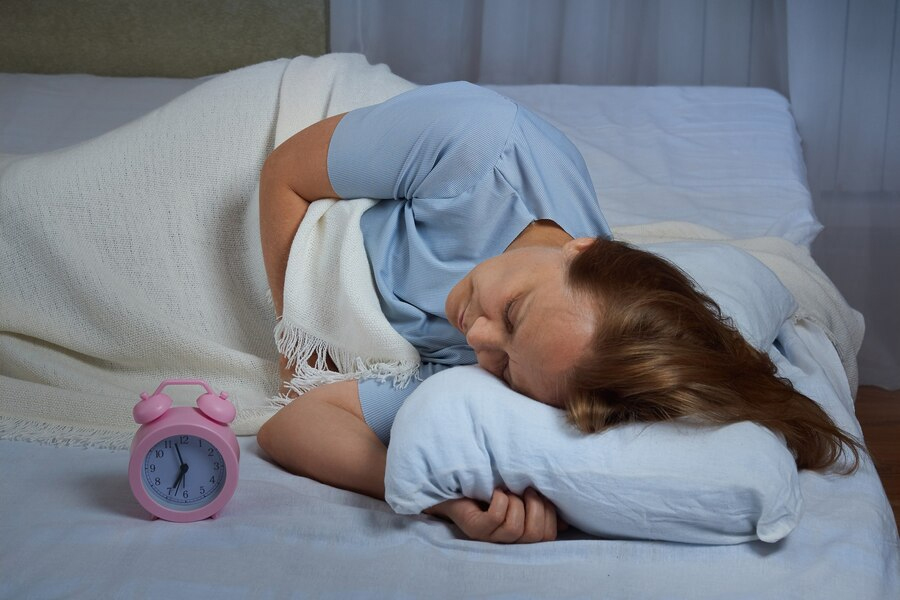
Premenstrual Syndrome (PMS) is a group of symptoms that a large number of menstruating women experience. From mood swings to breast changes to fatigue and irritability, the symptoms can range from physical to emotional to behavioural changes. Some women also report suffering from insomnia or difficulty sleeping before their period. While this can be coincidental, we asked an expert whether sleep issues are linked to PMS and, if so, why it occurs and how women can tackle them.
Table of Content:-
Also Read: Waking Up At 3 AM Every Night? Here's What Could Be The Reason
What Causes Insomnia Before Period?

The time before menstruation can be as challenging as during menstruation.
PMS is an annoying reality for many menstruating women and can affect over 90% of them in the week or two leading up to their period, according to the Office on Women's Health.
Another study published in Clinical Epidemiology and Global Health found that 75% of menstruating people experience various PMS symptoms, and 3–8% have severe symptoms.
According to Dr Archana Dhawan Bajaj, Gynaecologist, Obstetrician and IVF Expert, Nurture IVF Clinic, New Delhi, PMS symptoms often include bloating, breast soreness, and pelvic or muscular pain, which can keep women awake or lead to insomnia in them.
Insomnia is a sleep problem wherein people do not get enough quality sleep, affecting their daily activities and how they feel throughout the day.
A 2017 study published in the Scholars Journal of Applied Medical Sciences (SJAMS) found that 20.1% of 194 participants, aged between 17 and 22 years, experienced PMS with insomnia. Researchers listed some of the most common symptoms experienced by the participating women, which were abdominal pain, fatigue, mood swings, anxiety, and irritability.
"Feeling melancholy, angry, nervous, or irritated, which are all frequent PMS symptoms, can easily disrupt a good night's sleep, says Dr Bajaj, adding that there's a good probability that fluctuating hormone levels also have something to do with sleeplessness before periods.
Explaining this mechanism in detail, she says, "In women with typical menstrual cycles, oestrogen and progesterone levels increase and decrease at predictable intervals. Progesterone stays higher for a little longer than oestrogen. So, when your menstruation approaches—ranging from two weeks to a few days before—progesterone levels rise beyond those of oestrogen. This late-cycle hormone change may have an influence on your sleep as you approach your next period."
Also Read: How to Tell If You Have Insomnia or Just Trouble Sleeping: Expert Insights
Understanding The Link Between PMDD And Insomnia

Premenstrual Dysphoric Disorder (PMDD) is a more severe form of PMS that leads to symptoms such as severe depression, irritability, appetite change, and physical symptoms like headaches, breast tenderness, and weight gain.
Additionally, according to Dr Bajaj, PMDD can also lead to sleep problems, like insomnia, which she says occurs persistently the week before one's period and then cures quickly.
She suggests that hormonal fluctuations have a role to play in this, explaining, “During this time, persons with PMDD produce less melatonin, a sleep-promoting hormone, and their bodies respond to melatonin less effectively than usual.”
Simply put, during the luteal phase of the menstrual cycle, which occurs after ovulation and before menstruation, hormonal fluctuations can cause a decrease in melatonin production and an increase in progesterone, which can disrupt sleep.
Additionally, people with PMS or PMDD may have abnormal changes in sleep architecture during the week preceding menstruation. Sleep architecture describes how much time a person spends in each stage of sleep. Studies have found that persons who menstruate generally have more light sleep and less Rapid Eye Movement (REM) sleep before menstruation.
Tips To Manage Premenstrual Insomnia

Here are some expert-approved tips to manage PMS or PMDD insomnia:
- Adopt a consistent sleep and wake-up schedule.
- Refrain from sleeping, especially in the afternoon.
- Eat meals at the same time daily.
- Avoid eating and drinking close to bedtime.
- Avoid caffeine, nicotine, and alcohol.
- Manage stress.
- Create a sleep-friendly environment.
- Engage in physical activity during the day.
- Follow a heart-healthy lifestyle.
- Optimise your sleep environment with the appropriate mattress, pillows, or sleep accessories.
Conclusion
Insomnia can be a common issue in those who suffer from PMS. PMS affects most menstruating women, and managing the symptoms is the key to finding relief. If you’re someone who struggles with sleep a week or two before your period, it is crucial to first identify whether it is PMS that is causing your symptoms or another underlying health issue. Consult a doctor to get to the bottom of it.
[Disclaimer:This article contains information provided by an expert and is for informational purposes only. Hence, we advise you to consult your professional if you are dealing with health issues to avoid complications.]
Also watch this video
How we keep this article up to date:
We work with experts and keep a close eye on the latest in health and wellness. Whenever there is a new research or helpful information, we update our articles with accurate and useful advice.
Current Version